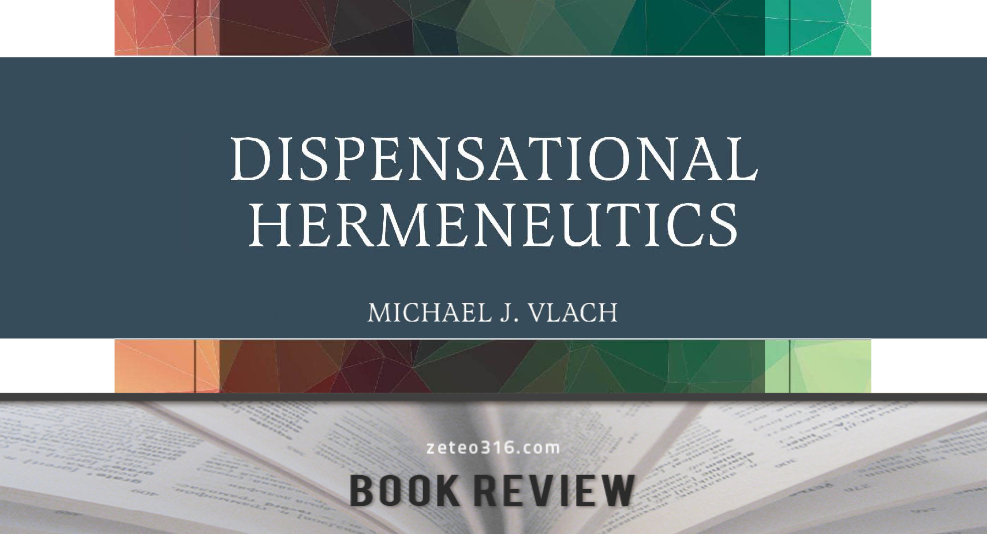
Review of the book Dispensational Hermeneutics by Michael Vlach. It is published by Theological Studies Press (Paperback and Kindle, 111 pages).
The subtitle of the book is “Interpretation Principles that Guide Dispensationalism’s Understanding of the Bible’s Storyline.”
Contents
Introduction
1) Key Elements of Dispensationalism’s Storyline
2) The Hermeneutics of Dispensationalism Part 1
3) The Hermeneutics of Dispensationalism Part 2
4) The Hermeneutics of Dispensationalism Part 3
5) The Hermeneutics of Non-Dispensationalism Part 1
6) The Hermeneutics of Non-Dispensationalism Part 2
Conclusion
Each chapter has subheadings. For example, Chapter 6 contains the following topics: Storyline Change Language; Jesus as “Fulfillment” Means Transforming Old Testament Expectations; Emphasis on First Coming Fulfillment.
Review
Michael Vlach is a great communicator. He has the gift of saying a lot while using brevity. I suffer somewhat from ADD yet his style kept me attentive. Vlach does not waste the reader’s time. At only 111 or so pages, he delivers the right punches, and makes powerful points. I found myself taking notes and underlining parts on most pages.
I personally found the section on “types” very helpful. Recently, there’s been a movement towards postmillennialism in the American Reformed Church. There are likely several reasons for this; but the efforts of Doug Wilson and the shift from amil to postmil by Reformed apologist James White may have contributed.
Notably, I haven’t seen any strong biblical arguments from this camp.
But whatever the case, I note that the term “types” has been dropped by some of these folk on social media as if typology legitimately changes the meaning of passages such as Jeremiah 31 -33, and Zechariah 14 etc. It’s as if typology is a Magical Decoder Ring. Mention types and quietly pass on from a “literalistic” view of Jer 31:31-37 and Zech 14.
“Types are a biblical reality, but typological interpretation, in which types supposedly change the Bible’s storyline, is not legitimate.” ~ Michael Vlach
Throughout the book Vlach adeptly interacts with the various forms of supersessionist arguments and techniques employed against a literal prophetic fulfillment of ethnic Israel’s restoration, and the land promises. His method is to cite non-dispensational proponents (Ladd, Strimple, Goldingay, Robertson, Burge etc) and then present dispensational responses. Vlach does this to great effect.
Why buy?
This is a must-read book for anyone who holds to dispensationalism. Moreover, non-dispensationalists owe it to themselves to honestly interact with it. If God made Old Testament promises to a particular people, why does the Covenant Theologian believe they must be either re-interpreted or restated in the New Testament?
Can we trust God’s promises? Did the prophets and Israel understand these, or were they so expansive that (as some suggest) God had to use figurative language in order to convey the un-conveyable? If we can understand these concepts, why not God’s audience? It’s not complex like physics or calculus! This is but one example of what the book addresses.
Maranatha!
Purchase
Dispensational Hermeneutics !
Disclosure: This link is an affiliate link meaning, at no additional cost to you, we may get a commission if you make a purchase. Thanks for your support in this way!
Read our Full Disclosure policy here.

